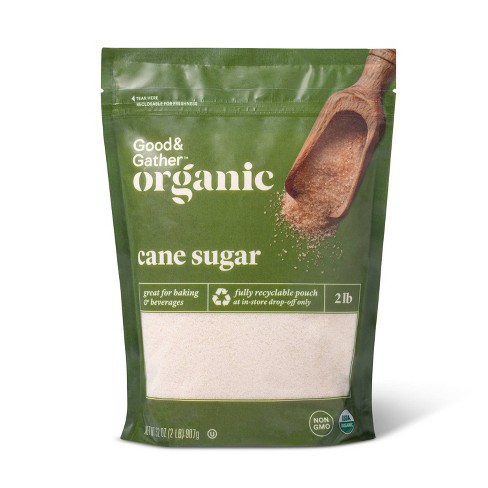Exactly How Cane Sugar Handling Chemicals Improve Sugar High Quality and Return
The duty of processing chemicals in cane sugar production is pivotal, as they straight affect both the top quality and yield of the last product. The unification of turned on carbon and enzymes offers to maximize the malfunction of complex sugars, inevitably leading to a purer and higher-quality sugar.
Introduction of Cane Sugar Processing
Cane sugar processing involves a collection of essential steps that transform raw sugarcane right into refined sugar products. The procedure starts with harvesting, where fully grown sugarcane stalks are cut and delivered to processing facilities. Upon arrival, the walking stick goes through cleaning to get rid of pollutants such as dirt and plant materials.
Adhering to washing, the walking stick is crushed to remove the juice, which consists of sucrose - sugar and cane. This juice goes through explanation, where lime and warmth are made use of to eliminate remaining contaminations and non-sugar parts. The made clear juice is then vaporized to focus the sugar material, causing the development of thick syrup
Following, the syrup is crystallized through a controlled air conditioning procedure, resulting in sugar crystals. To achieve polished sugar, further filtration steps are used, consisting of cleaning, re-crystallization, and drying out.
The last item is either packaged as raw sugar or even more refined right into white sugar, catering to different customer and commercial demands. This comprehensive series of steps makes sure the production of high-quality sugar, essential for countless applications in food and drink markets.
Key Processing Chemicals Made Use Of
The production of refined walking cane sugar relies on different processing chemicals that play substantial duties at different stages. This action is essential for improving the overall top quality of the drawn out juice.
Phosphoric acid serves a twin objective; it enhances the information process and aids in the elimination of color-forming compounds, contributing to a greater pureness of the end product. Additionally, sulfur dioxide operates as a whitening agent, enabling for the reliable removal of undesirable pigments and enhancing the color of the sugar.
Other remarkable chemicals consist of triggered carbon, which is used for more decolorization, and enzymes that promote the breakdown of complicated sugars right into simpler types, thus enhancing yield. The cautious selection and application of these processing chemicals are essential for maximizing the efficiency of sugar extraction and refining procedures, ultimately resulting in a much more constant and greater top quality sugar product.

Influence On Sugar High Quality
How do handling chemicals affect the high quality of refined sugar? The introduction of different chemicals in the cane sugar processing stage dramatically improves the pureness and total quality of the end product. Trick representatives, such as phosphoric acid and calcium hydroxide, facilitate the clarification procedure, properly eliminating pollutants and colorants that can negatively influence sugar's appearance and preference. By neutralizing unwanted parts, these chemicals help attain a higher degree of my blog decolorization, leading to a more visually appealing and marketable item.
In addition, the use of activated carbon and ion-exchange resins throughout the refining process plays a crucial function in getting rid of off-flavors and unfavorable smells, adding to the sugar's sensory account. This improvement not just boosts the organoleptic and aesthetic high qualities click here to find out more however additionally improves the life span by reducing microbial task connected with contaminations.
Additionally, the specific application of these chemicals ensures that the sugar exhibits a regular grain dimension and flowability, which are vital qualities for both commercial applications and customer choices. In general, the tactical use of processing chemicals is essential in attaining top quality refined sugar that satisfies market requirements and consumer assumptions.

Enhancing Yield Efficiency
Enhancing return effectiveness in walking stick sugar handling involves optimizing various stages of manufacturing to make the most of the amount of sugar drawn out from raw walking cane. One crucial facet is the choice and application of proper processing chemicals, which can promote the failure of cell wall surfaces and enhance sugar release during removal. Chemicals such as acids and enzymes play a vital function in this procedure by hydrolyzing polysaccharides and dissolving pollutants, consequently enhancing the general extraction efficiency.

Normal surveillance and modification of handling parameters are vital to keep effectiveness throughout manufacturing (sugar and cane). By employing these strategies, sugar producers can not just enhance the amount of sugar obtained however additionally decrease waste and reduced production expenses, contributing to a more sustainable and successful sugar processing procedure
Advantages for Consumers and manufacturers
Walking cane sugar handling chemicals use substantial pop over here benefits for both customers and manufacturers, creating an extra sustainable and reliable industry. For manufacturers, these chemicals improve removal processes, leading to greater returns and enhanced sugar quality.
The better quality of sugar translates to much better preference and uniformity in food items. In addition, the usage of handling chemicals can lead to an extra secure supply of sugar, alleviating lacks and price spikes that can take place due to ecological factors or market changes.
Conclusion

The role of handling chemicals in cane sugar production is crucial, as they directly affect both the high quality and yield of the final product (sugar and cane). The consolidation of triggered carbon and enzymes serves to enhance the malfunction of complex sugars, eventually leading to a purer and higher-quality sugar.Cane sugar handling entails a series of important steps that change raw sugarcane right into refined sugar items.Enhancing yield efficiency in walking cane sugar handling entails maximizing different phases of production to make the most of the quantity of sugar removed from raw walking cane.Walking cane sugar handling chemicals play a crucial function in boosting both sugar quality and yield